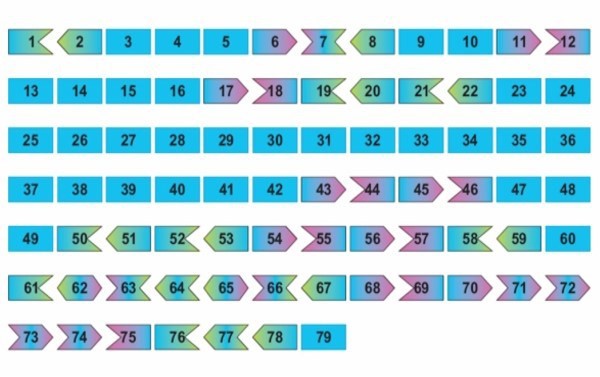Blog: Why 7 and 9 are the magic numbers for World Duchenne Awareness Day
Date 7.09.2019

Duchenne muscular dystrophy (DMD) is the most common type of muscular dystrophy in children, a progressive disorder that causes muscles to become weaker over time until it affects the whole body.
Dr Karen Anthony, is a Senior Lecturer in Molecular Bioscience at the University of Northampton and leads a tem of post and undergraduate students engaged in research to better understand the condition. Here, she blogs about the importance of today’s date when World Duchenne Awareness Day is held.
The 79 boxes in the main image for this blog represent the 79 exons (or, a segment of a DNA or RNA molecule containing information coding for a protein or peptide sequence) of the DMD gene.
This gene encodes for a protein called dystrophin and some exons are joined together like a jigsaw.
As a rule, DNA mutations that disrupt this ‘jigsaw’ will cause Duchenne muscular dystrophy. For example, without exon 50, exons 49 and 51 cannot ‘slot’ back together, so a functional dystrophin protein will not be produced.
Dystrophin is very important for the normal functioning of our muscles and is virtually absent in muscle from patients with Duchenne muscular dystrophy. How does this affect muscle function and the lives of those living with Duchenne? Start by watching and sharing this amazing video ‘Introduction to Duchenne muscular dystrophy’:
The aim of World Duchenne Awareness Day is to improve the education and awareness of Duchenne muscular dystrophy around the globe. With increased awareness comes an increased interest in the research being carried out to not only better understand and treat the disease but to also improve wellbeing, standard of care and support. Through research we have already begun to change the natural history of Duchenne to help provide a normal independent future and enable these boys to play a full part in society. There is still a long way to go.
DMD is a muscle disorder, but intelligence of individuals with the disease is lower than the general population. Intellectual disability, epilepsy, autism and attention deficit hyperactivity disorder are also common. Mounting evidence links these symptoms to the loss of dystrophin in the brain – yet brain involvement in DMD is often ignored.
Our research group at the University focuses on what dystrophin is doing in the brain and how its loss can lead to cognitive impairment. To achieve the best possible quality of life, we need to treat every element of Duchenne not just the muscle. The lack of understanding of how dystrophin functions in the brain is a major roadblock to the development of effective whole body treatments.
For more information visit the World Duchenne Awareness Day website and release a virtual balloon.
For more from Dr Anthony, read her blog or follow her on Twitter.